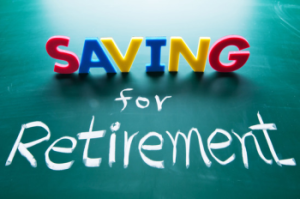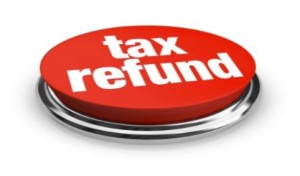 It’s that time of year again when you still have time to arrange your finances to reduce your income taxes before year-end. There are only a few weeks left before the end of the year for Tax Saving Opportunities. Once Jan 1st rolls around it will be time to begin focusing on the next tax year. Also managing your tax liability. Some tax planning activities apply all year long. While others are more specific to the end of the year in terms of tax management. Talk to your tax accountant to review what steps are needed to minimize your tax commitment for the year.
It’s that time of year again when you still have time to arrange your finances to reduce your income taxes before year-end. There are only a few weeks left before the end of the year for Tax Saving Opportunities. Once Jan 1st rolls around it will be time to begin focusing on the next tax year. Also managing your tax liability. Some tax planning activities apply all year long. While others are more specific to the end of the year in terms of tax management. Talk to your tax accountant to review what steps are needed to minimize your tax commitment for the year.
Tax Saving Opportunities
Consider tax reduction strategies that stem from offsetting capital gains with losses. Also writing off interest expense and other certain year-end activities that must be completed by December 31 in order to realize tax savings in 2010.
Here are five-year end tips that may help Canadian families and individuals in terms of tax planning. You should always discuss your personal situation with your investment or tax adviser before making any decisions. Individual situations can vary widely. The impact of various strategies can have a wide impact as well, both negative as well as positive.
If you are an American, you may also be able to take advantage of some of these considerations. However, you should review your opportunities with a US financial adviser.
Turn losing investments into potential savings
Tax-loss selling is the practice of selling securities that are in an accrued loss position at year-end. Investors do this in order to offset capital gains realized earlier in the year. When tax-loss selling, to guarantee that a trade of public securities is settled in 2019, the trade date must be December 24, 2019, or earlier. This ensures the settlement takes place in 2019. Also that any losses realized are available to the taxpayer this year. Any trade made after December 24, 2019, will not settle until 2020. As a result herefore those losses would not be available until next year.
If you’re hopeful that a losing investment will recover and you’re thinking of buying it back shortly after selling, be wary of the superficial loss rule. A superficial loss occurs when you or you sell an investment to realize the loss. Then buy it back within 30 days after the sale date. The CRA can deny a superficial loss. They can instead add it back to the adjusted cost base (tax cost) of the repurchased security. This means the benefit of the capital loss can only be obtained when the repurchased security is sold again and not repurchased within 30 days.
Turning 71 in 2010, it’s time to convert your RRSP
Canadians with Registered Retirement Savings Plan (RRSP) annuitants who turned 71 in 2019 must convert their RRSPs into either a Registered Retirement Income Fund (RRIF) or a registered annuity on or before December 31, 2019. And if you plan on making any final contributions to your RRSP, you will only have until December 31 to do so as you no longer have the extra sixty-day advantage of delaying until March 1, 2020. If, however, your spouse or partner is under 72, you can continue contributing to a spousal RRSP in his or her name. This assumes you still have contribution room.
Finally, if you’re 71 and don’t have a younger spouse or partner but still have earned income from 2019 that will create RRSP contribution room for 2020. Consider making a deliberate over-contribution in December 2019 before converting to an RRIF. While you will pay a penalty tax of 1% on the over-contribution for the month of December, when the new RRSP room opens up on January 1, 2020, the over-contribution problem disappears.. You can deduct the 2019 contribution in 2020 or a future year.
Contribute to an RESP to generate future savings
If you have a child or grandchild who has never participated as a beneficiary in a Registered Education Savings Plan (RESP) and who turned 15 sometime in 2019, December 31 is your last chance to contribute at least $2,000 to his or her RESP in order to collect the 20% Canada Education Savings Grant (CESG) for 2019 and create eligibility for CESGs in 2020 and 2021. If you miss the deadline, the child or grandchild will not be eligible for any CESGs in the future.
Spread some goodwill by making donations
December 31 is the last day to make a donation and get a tax receipt for 2010. Keep in mind that gifting publicly-traded securities, mutual funds, or segregated funds with accrued capital gains to a registered charity not only entitles you to a tax receipt for the fair market value of the security or fund being donated but eliminates any capital gains tax as well.
Pay off investment expenses and interest
In order for you to deduct any investment-related expenses on your 2019 tax return, the amounts must actually be paid by year-end (December 31).
Such expenses include interest paid on money borrowed for investing. In addition to investment counseling fees for non-registered accounts. Also for professional accounting services for tracking rental or business income and safety deposit box rental fees.
As always, discuss all tax-planning strategies with a financial advisor or tax professional to properly determine your risk and eligibility. There may be other potential tax-savings opportunities depending on your personal situation.
 Turbotax is one of the online tax filing services that consumers can use to file taxes online. Turbo tax can be found at Turbotax.com. It can be downloaded to your PC. You can file your taxes easily online. Subsequently, you can then make your payment from your bank account if you owe taxes to the Federal Government. Â This program will also help you make sure you get all of your tax deductions. You can also get your tax refund early. File taxes online prior to April 15th in the US and prior to April 30 in Canada to avoid any tax penalties on tax amounts owing.
Turbotax is one of the online tax filing services that consumers can use to file taxes online. Turbo tax can be found at Turbotax.com. It can be downloaded to your PC. You can file your taxes easily online. Subsequently, you can then make your payment from your bank account if you owe taxes to the Federal Government. Â This program will also help you make sure you get all of your tax deductions. You can also get your tax refund early. File taxes online prior to April 15th in the US and prior to April 30 in Canada to avoid any tax penalties on tax amounts owing.


